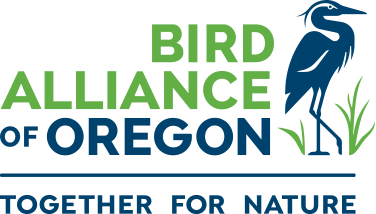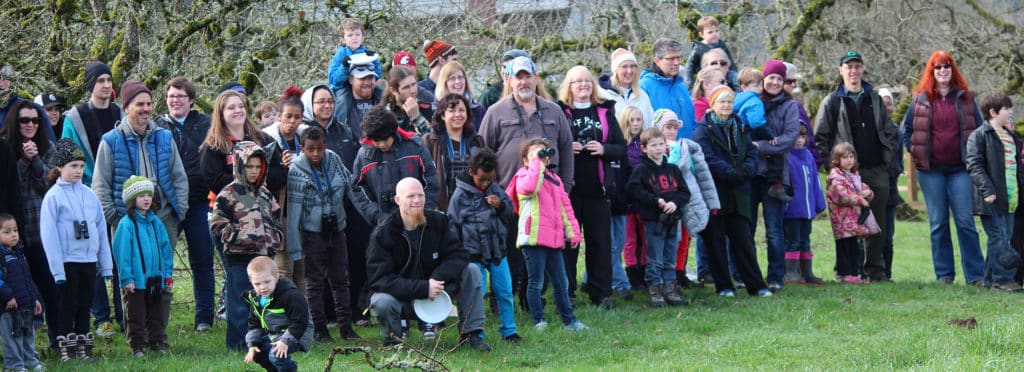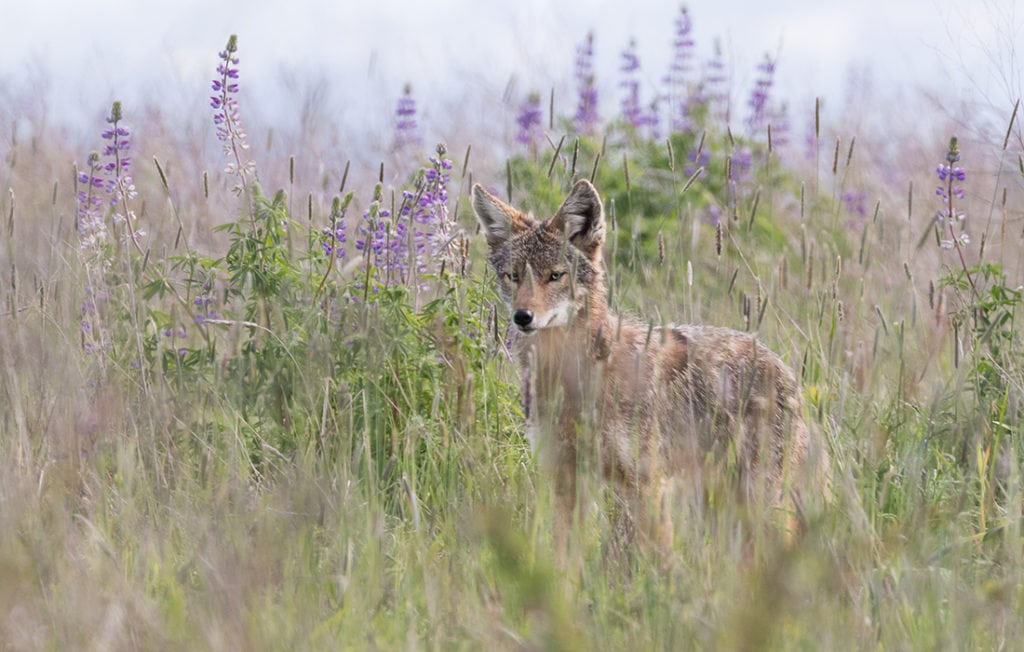
As a result of this outbreak, Wildlife Rehabilitation Centers across Oregon are taking additional precautions to minimize the risk of transferring the disease among birds being held at centers. These are difficult decisions as we realize that it means that certain species will need to be euthanized rather than treated when they need rehabilitative services. We take these decisions very seriously and make them in consultation with state and federal wildlife agencies and other internal and external wildlife experts. This is an evolving situation and our protocols are likely to evolve as well over the coming months.
Wildlife Care Center Avian Influenza Intake Policy (updated 5/20/2022)
Portland Bird Alliance of Oregon will not be accepting ANY injured ducks or geese for treatment, including ducklings or goslings. Multiple goslings in Oregon have tested positive for HPAI, which is why we are making this difficult update when they initially had been presumed to be low risk. If you have found orphaned or abandoned ducklings or goslings that appear healthy, you can attempt to foster them with a wild waterfowl family by following our instructions here.
Injured ducks and geese are being referred to Oregon Dept. of Fish and Wildlife (ODFW) (in the Portland area, the Sauvie Island office or Clackamas office). ODFW will provide these animals with humane euthanasia. Please call ahead when possible. We are taking this step because wild ducks and geese are considered “carriers” of this disease and are often asymptomatic. Allowing them into a hospital facility potentially puts the entire population of animals at the hospital at risk. We will continue accepting all other species native to the Pacific Northwest.
What animals are at risk from HPAI?
Avian Influenza is a virus that can infect a wide variety of birds. Infected wild waterfowl (ducks and geese) are considered carriers of this virus, and often do not show any symptoms that they are infected. This particular strain is called “highly pathogenic” avian influenza because it causes severe disease and death in domestic poultry (chickens, turkeys, pheasants, ducks, geese, etc). Over recent months, the current strain of avian influenza has also infected other species of wild birds, specifically raptors and scavengers, which do suffer severe disease and death as well. While infection in non-avian species is rare, it is possible. You can see a list of all of the confirmed cases of HPAI on the USDA APHIS website.
What are the symptoms of HPAI in animals?
There are a wide variety of symptoms associated with HPAI, both because it affects multiple organ systems and because it behaves differently in different species. In waterfowl, birds often have no symptoms at all, or may have mild respiratory symptoms. HPAI causes very severe disease in domestic poultry. Between 90%-100% of domestic poultry infected with HPAI die, often within 48 hours. Infected raptors also suffer severe disease and high mortality, which often shows up as neurologic symptoms. However, the list of possible symptoms is long and varied, including respiratory disease, rash, limb edema, neurologic symptoms, diarrhea, weakness, lethargy, and sudden death.
Can people be infected with HPAI?
Yes. However, there has only been one case of a person testing positive for this virus here in the United States. That person worked directly with a large number of infected poultry. While the CDC considers this virus a low risk to human health, people who have close contact with wild birds or infected poultry should to take additional precautions to stay safe.
If I find a sick, injured, or orphaned bird, what should I do?
Bird Alliance of Oregon remains open to admissions of most native wildlife species, and our hotline remains open. Unfortunately, because of the risk that they can asymptomatically carry HPAI and put our patients and staff at risk, we are unable to accept ALL ducks and geese at this time (including ducklings and goslings). Because of these same risks, we don’t recommend that the public handle wild waterfowl, but if you do have a badly injured duck or goose, you can take them to the Oregon Department of Fish & Wildlife for euthanasia – a list of office locations can be found here, there are two offices in the Portland area: on Sauvie Island and in Clackamas. Please call ahead when possible. Bird Alliance of Oregon will continue to accept other native species including small mammals, reptiles, amphibians, songbirds, and raptors. This may change as the situation evolves, should the illness become more prevalent in our resident populations as well as migratory birds. We will continue to evaluate the situation and respond to the risk level as we strive to serve as many animals and people as possible throughout this outbreak.
Should I take down my bird feeder?
Although bird feeders can speed the spread of illness among the birds that visit them, the songbirds that visit bird feeders currently have a low risk of contracting and spreading avian influenza. At this time, we are only recommending taking your feeders down if you keep domestic birds, as an extra precaution for your flock. We always recommend that you clean bird feeders and birdbaths frequently, and that you take down your feeder for 2 weeks any time you observe a sick bird visiting the feeder. For more on this recommendation, we recommend checking out this article from the Cornell Bird Lab.
What should I do if I notice groups of dead wild birds?
It is not uncommon to see an individual dead bird once in a while and that is not in and of itself a cause for concern. However, if you find multiple dead wild birds in the same place, please do not touch the carcasses and report them to the Oregon Department of Fish & Wildlife Health Lab at 1-866-968-2600.
I own domestic poultry, what should I do?
It’s important to take precautions to protect your flock. Check out the USDA’s Defend the Flock Resource Center for information and tools to help prevent an outbreak. If your domestic birds are sick or dying, contact the Oregon Department of Agriculture at 1-800-347-7028.
How can I stay updated about cases of HPAI in Oregon?
The US Department of Agriculture’s Animal and Plant Health Inspection Service maintains updated information about the situation, including a list of all detections in the US, and is the best place to stay updated.



